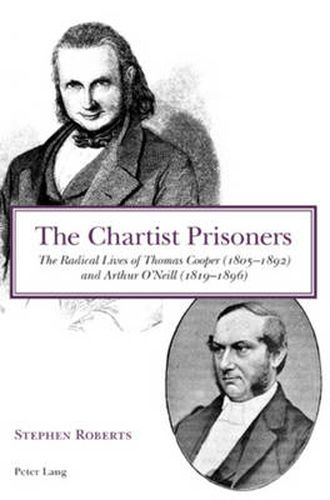Readings Newsletter
Become a Readings Member to make your shopping experience even easier.
Sign in or sign up for free!
You’re not far away from qualifying for FREE standard shipping within Australia
You’ve qualified for FREE standard shipping within Australia
The cart is loading…






This book recovers the stories of two remarkable Victorian working men. Thomas Cooper and Arthur O'Neill were both imprisoned for seditious offences in 1843. The friendship they formed in Stafford Gaol lasted for fifty years. These two men wanted to be remembered as Chartist prisoners - but, talented and energetic, they also made their marks in other areas. Cooper was the author of a famous poem, The Purgatory of Suicides, and of novels; he knew well Thomas Carlyle and Charles Kingsley, and came into contact with Benjamin Disraeli and Charles Dickens. Later in life he became a lecturer in defence of Christianity. O'Neill worked with Joseph Sturge and Henry Richard for peace and international arbitration, attending a number of international peace conferences. An important contribution to Chartist studies, this book also examines in detail artisan literary activity, pacifism and Christian apologetics in Victorian Britain.
$9.00 standard shipping within Australia
FREE standard shipping within Australia for orders over $100.00
Express & International shipping calculated at checkout
This book recovers the stories of two remarkable Victorian working men. Thomas Cooper and Arthur O'Neill were both imprisoned for seditious offences in 1843. The friendship they formed in Stafford Gaol lasted for fifty years. These two men wanted to be remembered as Chartist prisoners - but, talented and energetic, they also made their marks in other areas. Cooper was the author of a famous poem, The Purgatory of Suicides, and of novels; he knew well Thomas Carlyle and Charles Kingsley, and came into contact with Benjamin Disraeli and Charles Dickens. Later in life he became a lecturer in defence of Christianity. O'Neill worked with Joseph Sturge and Henry Richard for peace and international arbitration, attending a number of international peace conferences. An important contribution to Chartist studies, this book also examines in detail artisan literary activity, pacifism and Christian apologetics in Victorian Britain.